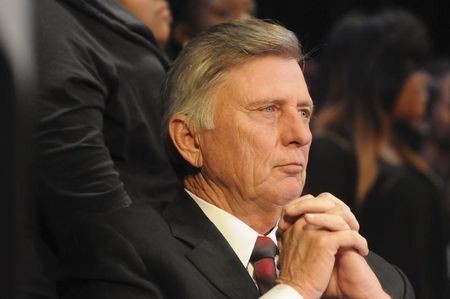By Steve Barnes
LITTLE ROCK Ark. (Reuters) - The Republican surge in Tuesday's U.S. elections carried Arkansas along with it, threatening to sweep away a bipartisan health insurance plan in the state that is also being studied by other states as an alternative to Obamacare.
Republicans had a narrow majority in the state's House of Representatives and several in the party campaigned hard to overturn what is known as the "Private Option," a plan cobbled together by centrists in both parties that has enrolled nearly a quarter-million Arkansans previously without medical coverage.
Republicans will see their numbers grow in the state's Senate and House, where their bare 51-vote House majority is set to swell in excess of 60, with many new members staunch opponents of the Private Option.
The program uses federal Medicaid funds from the Affordable Care Act, or Obamacare, to help buy health insurance for low-income Arkansans, many of whom would otherwise be assigned to Medicaid or have treatment costs absorbed by doctors and other healthcare providers.
"The votes are not there today for a simple continuation of the Private Option," said state Senator David Sanders of Little Rock, one of the Republican architects of the plan.
Designed by moderate Republicans and Governor Mike Beebe, a Democrat who is leaving office due to term limits, the Private Option was enacted and funded by the barest of majorities in the 2013 and 2014 legislative sessions.
It prevailed with unanimous support from Democrats but was bitterly opposed by conservative Republicans who complained the plan was "socialistic" and smacked of government overreach.
The Arkansas experiment has been adopted or considered in some form by states including Republican strongholds such as Utah, and battleground states in presidential elections including Pennsylvania, Michigan and Ohio.
The plan appeals to some conservative lawmakers who want to provide healthcare for the uninsured through the private sector rather than the federal Medicaid program. It also fits the Obama administration's goal of seeing states use federal Medicaid money to provide insurance for lower-income residents.
Governor-elect Asa Hutchinson, a Republican, has not committed to continuing the Private Option. Those involved with Arkansas state budgeting, however, say abandoning it would be fiscally disastrous.
"It would blow a hole in the budget," said Richard Weiss, director of the Arkansas state finance department.

"It would cost us tens of millions of dollars in addition to eliminating coverage for thousands."
(Reporting by Steve Barnes; Editing by Jon Herskovitz and Eric Beech)
